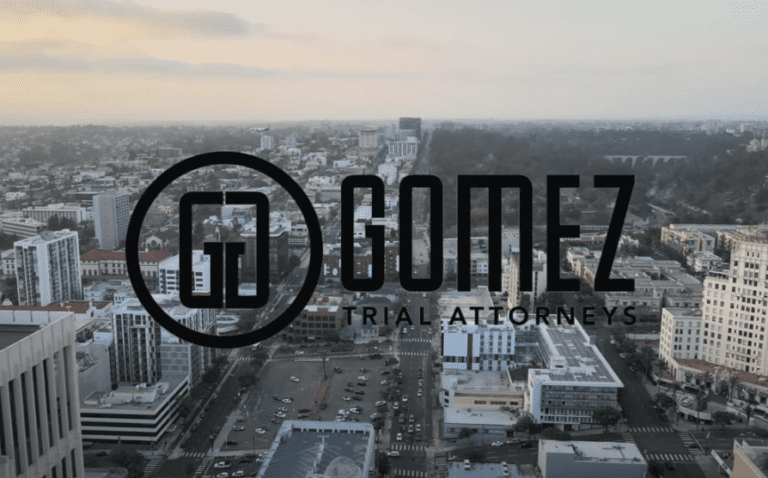
Following a serious car accident, you may have questions about how and when to contact an insurance company and even whose insurance company you should contact.
Should you call the insurance company if the other driver called the accident? When should you call your insurance company to report an accident? Take a look at some of the most common insurance questions, and how to handle them following a car accident.
1. Do I have to call my insurance company if the accident isn’t my fault?
You had a car accident. The other driver caused the accident. Do you have to notify your insurance company about the accident? If so, when should you call them?
When you have an accident, even if you did not cause the accident, you may need to contact your insurance company and let them know what happened for several reasons.
You need to remove the vehicle from your insurance (or insure a new vehicle).
If the accident totaled your vehicle, your insurance company needs to know about it. If you choose to buy back the vehicle and repair it after the insurance company totals it, you may need to have your insurance company review your policy, since you may not have the same level of coverage on a rebuilt title that you do on your current vehicle. If you buy a new vehicle, you may need to let your insurance company know that you no longer have the old vehicle.
Your policy may dictate that you have to inform your insurance company about any accident.
Sometimes, insurance policies require drivers to inform the insurance company about any accident, even if the driver did not cause the accident. If you do not know what your insurance policy requires, you may want to have a lawyer review your policy after your accident.
You do not want to risk ignoring those requirements, which could cause you to lose your insurance coverage benefits.
You need to use your own insurance coverage to help take care of damages from the accident.
Often, drivers find that, even if they did not cause an accident, they still need to use their insurance to help cover the cost of some of the damages they suffered in the accident.
Sometimes, for example, you may need to use MedPay insurance to help cover your medical costs immediately after the accident. If you have an accident with a driver who does not carry insurance, you may need to use your uninsured motorist coverage. If you have an accident with a driver who carries inadequate insurance, your underinsured motorist coverage may kick in to provide you with the funds you need to repair your vehicle.
Before you report an accident to your insurance company, regardless of who caused the accident, talk to a lawyer first. A lawyer can help review your policy, give you a better idea of what compensation you can expect through that policy, and help you understand your rights.
2. Will reporting an accident I did not cause to my insurance company cause my insurance premiums to go up?
Most drivers who find themselves reluctant to report an accident to their insurance company feel that way because they worry about an increase in premiums. Most of the time, insurance companies will not raise your premium just because you had an accident that you did not cause.
In some cases, however, you may face a premium increase if you have to use your coverage, including MedPay or underinsured coverage. You may want to talk to your insurance agent or discuss the challenge with your attorney to get a better idea of what increased costs you may face when you report your accident.
3. Do I report a car accident to my insurance company or theirs?
After a car accident, you will seek coverage through the other driver’s insurance policy. For you to file a claim, you will need to have evidence of the other driver’s negligent actions. Sometimes, that comes when the other driver reports the accident to his insurance company, admits fault, and progresses with the investigation. Other times, you may need to submit evidence that shows that the other driver caused the accident, like a police report or witness statement.
Typically, the insurance company will not start moving forward on a car accident claim until they hear from their driver or receive the evidence they need to establish your right to a claim. In some cases, you may report the car accident to your insurance company and ask your insurance company to cover the initial cost of repairs, then pursue compensation from the other driver’s insurance policy.
Before reporting an accident to either insurance company, however, talk to an attorney. You may find that an attorney can give you an idea of your specific rights and what you need to do next to protect yourself following an accident, regardless of who caused it.
4. Why do I need to talk to an attorney before talking to the insurance company after an accident?
Many people assume that insurance companies will help them following an auto accident. After all, insurance exists, they assume, for situations like the one they have ended up in: to help provide financial assistance with the damages associated with an accident.
Unfortunately, many victims of auto accidents quickly discover the insurance company does not offer them as much assistance as they had originally hoped. Talking to a lawyer before you talk to the insurance company can offer several key benefits as you navigate your personal injury claim.
A lawyer can help you avoid potential pitfalls that could minimize your compensation.
If you accept any liability for the car accident, it could serve to limit the compensation you can recover. Likewise, statements about the severity of your injuries, or even your activities in the weeks following the accident, could lead the insurance adjuster to decrease the compensation you can receive because your injuries do not pose as many limitations as you might have claimed in your initial lawsuit.
Unfortunately, many insurance adjusters will use a variety of tactics to help trip you up or get you to admit more than you had originally planned, all of which can ultimately serve to limit the compensation you can recover.
A lawyer, on the other hand, can help give you a better idea of what you should say to the insurance company, which could prevent you from mistakenly minimizing your compensation.
A lawyer can help you understand how much compensation you really deserve.
Many insurance companies now use a program to determine how much compensation they can issue to the victims of a serious car accident. The platform takes a look at the injuries the victim sustained and the expenses associated with those injuries, then issues a settlement offer that reflects a relatively low percentage of the compensation the victim actually deserves.
Frequently, car accident victims, even those with severe injuries like a traumatic brain injury or spinal cord injuries that could entitle them to substantial compensation, accept those offers because they think it represents the best an insurance company can give them.
Early on after your accident, you may not even know what your eventual medical expenses will look like or what challenges you may face in managing your claim.
A lawyer, however, can calculate and fight for the compensation you are lawfully entitled to, including what your future medical expenses might look like and how to plan for them accordingly. Many victims find that by working with an attorney, they can significantly increase the compensation they ultimately recover from the insurance company after a car accident.
A lawyer can help reduce your stress as you manage your car accident claim.
Dealing with a car accident claim can prove incredibly stressful, especially if you end up fighting with the auto insurance company for the compensation you really deserve. Many car accident victims find that working with a lawyer can help lower their overall stress and make it easier for them to manage their claims successfully.
5. What should I do if I get a settlement offer from an insurance company before I talk to a lawyer?
If you contact a lawyer soon after your accident, you may not have to worry about the insurance company contacting you with an inadequate settlement offer. Once you are represented by an attorney, the insurance company can no longer speak with you directly.
However, in some cases, you may try to handle your claim on your own first, or you might get a call from the insurance company before you have recovered enough to start worrying about things like car accident claims. Then, you may wonder what to do with that settlement offer.
Should you accept it? Negotiate? Does it reflect the compensation you deserve?
A lawyer can go over a settlement offer from an insurance company and give you a better idea of how much you should expect and whether that offer reflects the compensation you deserve for your injuries. Do not accept an offer immediately, even if the insurance company pressures you. Instead, get in touch with a lawyer and take the time to go over the offer.
Consider what it represents and what it offers. Does it offer enough compensation to cover your damages? Can you afford to accept that offer? If you have questions, ask a lawyer before accepting any offer, especially one that you fear does not reflect your needs.
6. When should I contact the insurance company after a car accident?
When it comes to contacting both the other driver’s insurance company and your insurance company after an accident, talk to a lawyer first. Often, the lawyer will take care of contacting the insurance company for you, which may reduce your stress more than you think.
You may also find it more practical to allow your lawyer to handle most of the interactions with the insurance company, especially if the insurance company tries to pressure you to accept a settlement offer that does not adequately compensate you for the losses suffered resulting from the accident.
In general, you should contact a lawyer as soon as possible after the accident so that the lawyer can start working on your behalf. While you do want to contact the insurance company and start your car accident claim before the statute of limitations expires, you may not want to actively file your claim immediately.
Soon after your accident, you may find that you do not know what your recovery will look like: how long it will take, what medical bills you may face, or even what your long-term recovery will include. Your lawyer may recommend waiting until you have more information before moving forward with your claim. In the meantime, a lawyer can help guide you through making a statement about the accident or interacting with the insurance company.
7. Can I file a claim with both my insurance company and the other driver’s insurance company?
In some cases, you may need to file a claim through both insurance companies to get the compensation you need for the damages sustained in the accident. Suppose, for example, that you sustained more damage to your vehicle than the maximum compensation provided by the other driver’s liability coverage.
You may need to use your uninsured or underinsured motorist coverage to help cover the cost of additional repairs to your vehicle. Likewise, you might use your MedPay insurance to cover your immediate medical costs after an accident, but need the other driver’s insurance to cover damages once your MedPay insurance runs out.
If you have questions about whose insurance coverage you need to use, or how to file a claim, a lawyer can guide you through the process.







